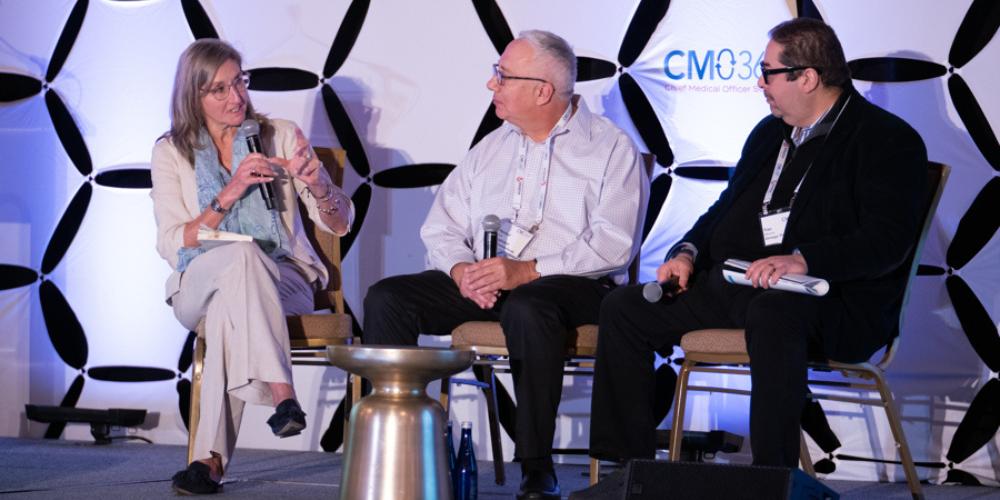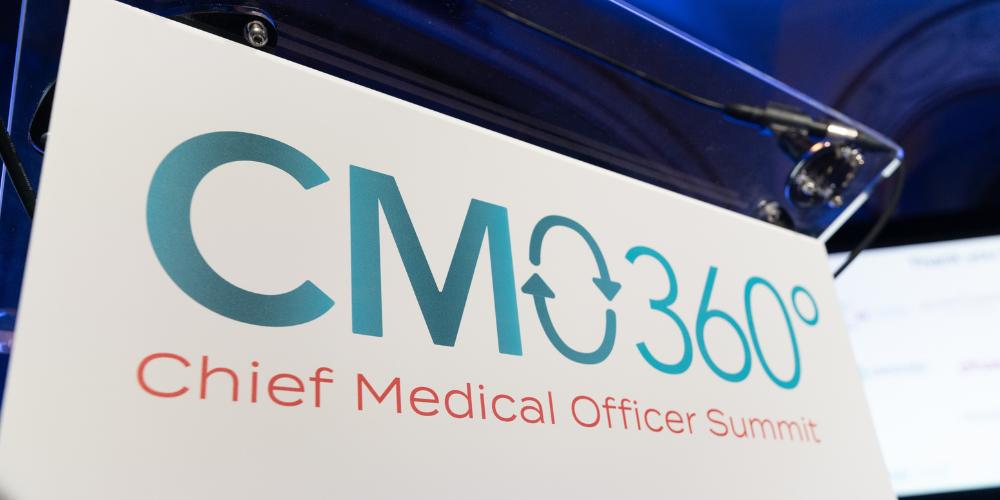
As someone who spent 20 years as an equity analyst, how did you evaluate biotech companies and their CMOs?
The CMO is the medical expert of a company and generally is the expert on the clinical trial and clinical data. Translating that complex information into investor-speak is an important function of the sell-side analyst so I would hire people to help me. From the investor perspective, the best CMO is one who can take that complex data and translate them for investors.
Additionally, the CMO needs to be credible and honest about the data, without coming off as promotional or overstating. Once you lose credibility, it is very hard to get back. A good CMO is able to translate the data that can be shared, credibly, without overselling or sharing confidential data.
How can CMOs learn to do that?
You need to know your audience. You will have all levels of sophistication on the investor, banking or analyst side. Some have sophisticated medical backgrounds and others are more generalist portfolio managers. Good CMOs are able to speak at the appropriate scientific complexity level and help people understand what is important. They can learn this from experience interacting with investors or by working with their CFO or Head of Investor Relations to arm themselves with the right bullet points to get the company’s message across. Those bullets are generally not too complex because adding complexity would dilute the message.
The most important part of the job is execution. You need to be able to drive the medical office, support the clinical trial and get the program over the finish line in the most thoughtful way possible. All the other stuff is secondary. But moving to that secondary side, leveraging your CFO or Head of IR will help you understand your audience. I try to prepare with my CMO by giving him a background on who we are talking to, what they care about, their level of sophistication and other dynamics like that. When you only have half an hour with an investor, you really need to be targeted.
“When I understand the clinical timelines and can match them with the budget and we are aligned in those data points including those conversations about when things change and how that affects staffing and resourcing, it becomes a continuous circle of success.”
What should CMOs know about the role of the CFO and how it's different from other C-suite roles?
Number one is that we are always looking to save money. Almost every biotech company is trying to extend the runway to continue to develop and expand their programs and platforms. CMOs should view us as a partner from that perspective. We can find cost savings and help with allocating resources.
Number two is that we work to finance the company. When we are in fundraising mode, we need to prioritize the time we get in front of investors. While that can be time consuming, without that funding there is no clinical trial. Especially at a smaller company it is important to find ways to conserve cash and fundraise effectively.
What are common friction points between CMOs and CFOs?
CFOs need to keep the budgets and headcounts down. Can we hold off hiring these two extra people from an FTE perspective? How do we balance that with how overworked our current employees feel? That is an ongoing discussion.
We also need to be realistic about clinical data points and clinical target timelines. Don’t try to be ambitious. Be realistic and make sure we have enough cushion so that I’m not going out telling people we will read out our pivotal trial at the end of Q1 when in fact it will be Q3. That level of trust between the CMO and CFO working to prepare each other so that we can speak to clinical goals and targets to potential investors or partners is so important.
Also, the CMO needs to keep the rest of the team informed. Are we on track? Are there potential obstacles we need to look out for? Are we off track? While something out of our control may happen, we need to get in front of the board, partners and investors to let them know our plan and not show up at the eleventh hour saying that we’re two months behind on a data readout.
“A good CMO is able to translate the data that can be shared, credibly, without overselling or sharing confidential data.”
How can CMOs best learn their role in capital raising?
I take my c-suite colleagues like the CMO and CTO to investor conferences to sit with me for meetings so that they can learn how I take questions and interact with investors. There is an art to responding and answering questions. You need to directly answer and admit when you don’t know rather than make something up. You don’t want to alienate generalist investors by speaking super technically and you don’t want to be vague with specialist investors who may be interested in the technical science. And you need to do all this without disclosing confidential information.
What separates a good CMO/CFO relationship from a great CMO/CFO relationship?
Collaboration. When I understand the clinical timelines and can match them with the budget and we are aligned in those data points including those conversations about when things change and how that affects staffing and resourcing, it becomes a continuous circle of success.
When there is less communication regarding capital needs, you get surprises from both sides. That can include surprises regarding a lack of funding or potential slippage in trial goal dates, which become hard to manage and lead to the company losing credibility.
“Investors want a de-risked program. They want to understand the level of risk for the lead program and they care more about cash burn and the timing of breakeven cash flow and positive cash flow.”
How does the current financial market affect the way that biotech companies approach investors?
Three years ago, the market would have paid a premium for promising data, because even if there was a low probability of success, the upside potential was projected to be very positive. Today, the market is more risk averse. Investors want a de-risked program. They want to understand the level of risk for the lead program and they care more about cash burn and the timing of breakeven cash flow and positive cash flow. Right now, people want more certainty. Private equity has been burnt in the last couple of years so there is a risk aversion that results in weaker companies being pushed out of the market.
Three years ago, we would be taking on more risk earlier on with the pipeline. Today, we are focused on our timing to positive cash flow and extending our cash runway because we need to weather the current storm until the market conditions change.
How should CMOs approach a conversation with the CFO when something goes wrong, either on the clinical or financial side?
Hitting our target numbers and managing our cash runway are the two things I think about most as a CFO. I can control spend but cannot necessarily control revenue and certainly can’t control clinical timelines. When clinical timelines slip, it affects the fundraising catalysts and our credibility as a company. And if it adds more risk around the programs’ success and data readout, it is even worse.
The biggest risk internally is surprises during the clinical program. As you run clinical trials, with so many moving parts in terms of patients, sites and CROs, you need to be agile around monitoring these trials and making adjustments to keep things on track. If the CMO can be focused on that and give advance warning about any concerns, I can handle the P&L and work with the rest of the business to ensure everybody is staffed properly.









